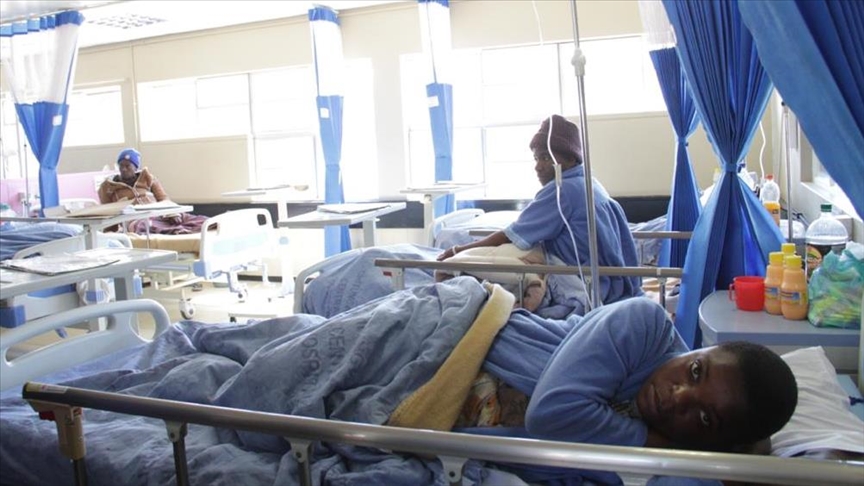
HARARE, Zimbabwe – Miranda Muvengwa, 9, succumbed to a deadly cancer last year.
Living in a single rented room in the Zimbabwean capital Harare’s densely populated suburb Mabvuku, her 26-year-old mother Mavis Chikate, said memories of her child and her last painful moments are haunting her.
Since then, the distraught mother has stopped attending her roadside shop.
The outbreak of coronavirus further aggravated the problem. Her father Gibson Muvengwa, 29, said that due to lockdown restrictions, he could not transport his daughter to South Africa for better treatment.
“It is not easy witnessing your only child struggling, let alone with cancer-killing her in the process. Due to continued lockdown, we could not travel to any country to seek better treatment for our daughter,” he told Anadolu Agency.
The country detects 5,000 new cancer cases annually, according to the National Cancer Registry of Zimbabwe.
Speaking to Anadolu Agency, Daniel Mckenzie, a board member of Childhood Cancer International, blamed the COVID-19 for the infant cancer mortalities.
“COVID-19 has affected the treatment of cancer as many children need to travel for their treatment every month for up to two to three years. But due to the travel restrictions many have failed to reach the hospital and have lost their fight against cancer,” he said.
Mckenzie is also the executive director of Kidzcan Zimbabwe – the only organization that provides psychosocial support for children undergoing cancer treatment.
In 2020 alone, Zimbabwe lost 69 children to cancer, according to Kidzcan Zimbabwe.
According to Michelle Madzudzo, a Zimbabwean radiation therapist who also doubles as founder and president of Talk Cancer Zimbabwe, the young children have always been left from cancer awareness.
“The cancer crisis facing children in the country is because people seem to see this as the disease of the elderly when it actually does not discriminate against age. Anyone is at risk whether you are young or old,” she said, urging more steps to attend to the pediatric cancers because children have to go long way.
Talk Cancer Zimbabwe is an initiative by radiation therapists aimed at addressing challenges faced by people who contract the disease.
Late detection is fatal
“Many parents in Zimbabwe do not know that children get cancer and hence not many children come to Parirenyatwa Hospital, which is the main cancer treatment center in the country,” said Mckenzie.
“A diagnosis of cancer in a child is not the end of the world; cancer can be managed and one can get through the cancer trajectory and enjoy more years in this lifetime,” said Madzudzo.
But the issue of detecting cancer late adds to mortality. A homeless 13-year-old Gariel Munemo, succumbed to stomach cancer early this year for want of early detection.
“When we carried him to the hospital, doctors told us it was too late, and he died of stomach cancer,” his friends told Anadolu Agency.
“Hopefully as we look into 2021, Kidzcan intends to build a half-way home for children to stay for free in Harare while undergoing cancer treatment. This will reduce abandonment, help with nutrition and avoid infection,” said Mackenzie.
A cancer survivor, 46-year-old Dexter Hofisi, a high school teacher by profession, who is now a cancer activist, said ordinarily nobody or few people talk about cancer when it affects children.
“Infant cancer cases are rarely talked about anywhere in Zimbabwe which therefore makes it hard to document how the disease is affecting children,” said Hofisi.
Requires awareness
Davis Mahaso, an oncologist in Harare said that delay in the detection of cancer whether in infants or adults can be deadly.
“To improve chances of survival among children suffering from cancer in Zimbabwe, parents and health experts must be alert to the early signs of children’s cancer and ensure early treatment,” he said.
Mckenzie said that his organization Kidzcan cannot do this alone.
“If we all come together, we can all make a difference and increase the survival rate of children in Zimbabwe. If detected early, no child can die of cancer,” he said, adding that awareness is key to beat the deadly disease. He urged communities, schools, and nursing institutions as well as the government to play their part and help prevention of childhood cancer.


